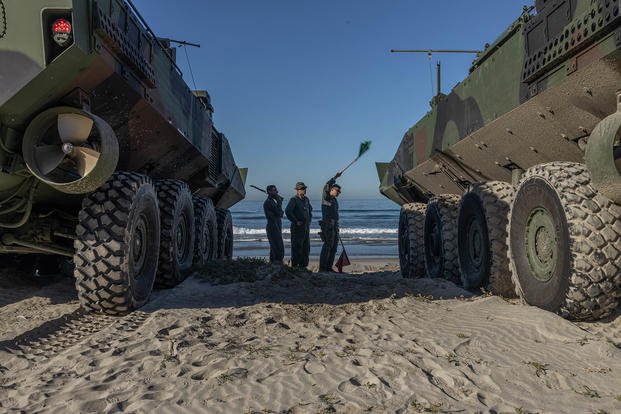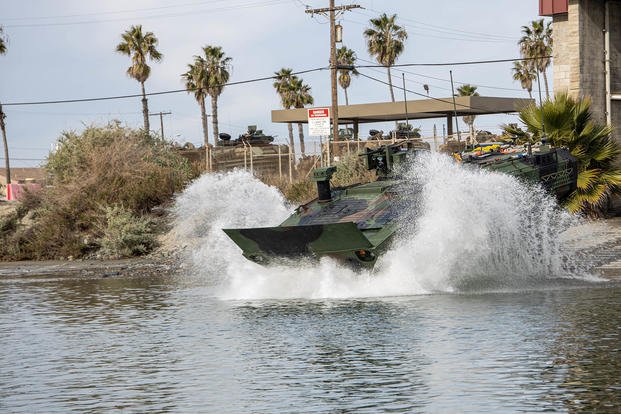Editor's Note: This article and headline were corrected to say that the ACV is only barred from operations in surf conditions. A previous version had indicated that the prohibition is more expansive.
The Marine Corps has announced that it is changing the way it trains the operators of its new Amphibious Combat Vehicles (ACV) after a series of mishaps in surf conditions led to safety stand-downs and investigations. Currently, the service isn't letting the craft drive in the waves.
The Marine Corps' No. 2 officer, Gen. Eric Smith, told Congress in written testimony submitted Wednesday that the craft "experienced some initial fielding challenges" but emphasized that "we have a phased plan that will allow our ACV operators to employ the vehicle safely and effectively."
That plan, announced in a press release Wednesday, involves the creation of a Transition Training Unit (TTU) that is developing a new program to make sure operators of the ACVs "possess the technical knowledge, skills, and proficiency required to safely operate, maintain, supervise, and employ" the vehicle.
Read Next: Army Secretary Says She Wouldn't Want Her Daughters Living in Some Army Barracks

The ACV was rushed into service to replace the older Amphibious Assault Vehicle (AAV), a craft that was in use from the 1970s until 2020, after a deadly mishap saw one AAV flood and sink while conducting an exercise off the coast of southern California, killing eight Marines and a Navy corpsman.
Since then, the ACV has experienced a string of safety mishaps. Aside from a stand-down over an issue with its towing mechanism in 2021, use of the craft was halted in the summer of 2022 after one of the vehicles tipped onto its side in a surf zone and another became disabled at Camp Pendleton in California.
The service let the craft get back in the water in September, 2022, only to pull them out again when an ACV flipped in the water off Camp Pendleton in October.
The press release from the service says that the investigations into both incidents are "currently in the redaction process," suggesting that public versions of those reports could be released in the coming months.
However, the Marine Corps noted as part of its press release that Lt. Gen. Karsten Heckl recently told Congress that he "recognized a gap in the way that the service has historically conducted surf zone observations" and the service is working to "rapidly procure and deploy new surface observation systems."
Marines cannot currently use the ACV in the surf, but with the new training, the Corps says that they plan to start slowly putting them back on the beach this summer. Any discussion of deploying the vehicle with an expeditionary unit is on hold for now, though.
"It's important for us to get the training right before we speculate on future deployments," the Marines said in the press release.
-- Konstantin Toropin can be reached at konstantin.toropin@military.com. Follow him on Twitter @ktoropin.
Related: Marines Put Amphibious Combat Vehicles Back into the Ocean After Safety Stand-Down













